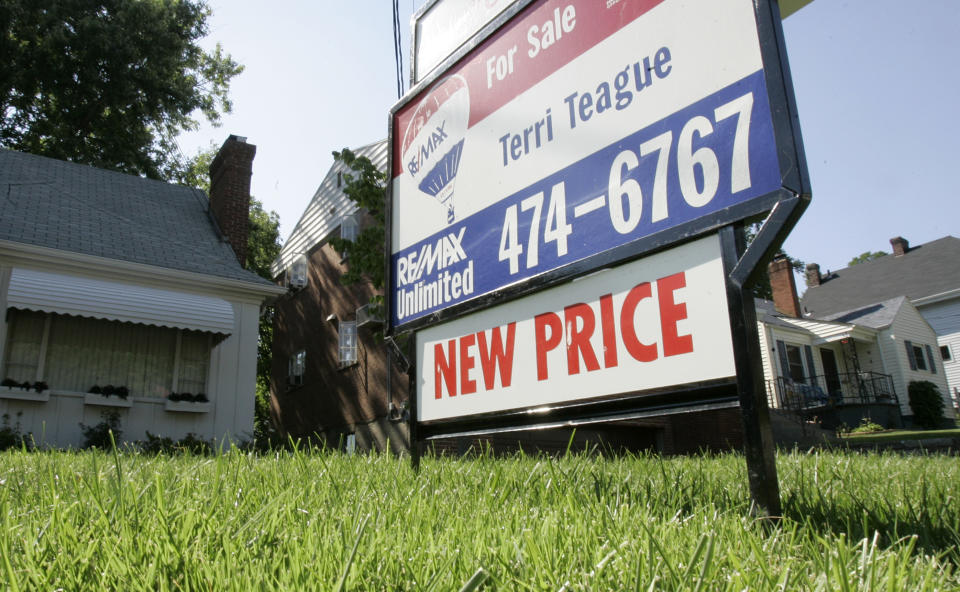Home price growth accelerated at the start of 2020 before coronavirus slammed the US

Home price growth in the U.S. started 2020 in high gear, but it’s unclear where prices will go now that the country is dealing with the coronavirus outbreak.
Standard & Poor’s said Tuesday that its S&P CoreLogic Case-Shiller national home price index posted a 3.9% annual gain in January, up from 3.7% in December. It is the sixth straight month of accelerated price growth. The 20-City Composite posted a 3.1% year-over-year gain, up from 2.8% in the previous month — missing analysts’ expectations of 3.23%, according to Bloomberg.
Read more: Buying a home: Everything you need to know
"The trend of stable growth established in 2019 continued into the first month of the new year,” said Craig J. Lazzara, managing director and global head of index investment Strategy at S&P Dow Jones Indices, in a press statement.
For the eighth consecutive month, Phoenix led the 20-City Composite, posting a 6.9% annual gain in January. Seattle, Tampa, and San Diego all rose by 5.1%.
‘These aren’t normal times’
But “it is important to bear in mind that today’s report covers real estate transactions closed during the month of January,” Lazzara said. “The COVID-19 pandemic did not begin to take hold in the U.S. until late February, and thus whatever impact it will have on housing prices is not reflected in today’s data.”
The increase in home prices follows other strong housing data, indicating that the housing market was strengthening before the COVID-19 outbreak. Pending home sales, a leading indicator of the market, reached its highest level in three years in February, according to data by the National Association of Realtors released Monday.
“While pending home sales are normally a decent leading indicator of actual closed sales four-to-six weeks later, these aren’t normal times,” said the latest Zillow Market Pulse. “It’s likely many contracts signed in February ultimately fell through in later weeks for reasons including cold feet, job losses, unavailability of necessary services like appraisals and inspections and/or an inability to secure financing in a tough mortgage market.”
Last week, initial jobless claims skyrocketed to a record 3.283 million for the week ending March 21. In recent weeks, realtors have reported that buyers are beginning to pull back because of the uncertainty in their jobs as well as the overall economy. Earlier this month, NAR Chief Economist Lawrence Yun said the decline in activity will cut home sales by 10% in the spring, typically the hottest season for housing activity.
“Numbers in the coming weeks will show just how hard the housing market was hit, but I am optimistic that the upcoming stimulus package will lessen the economic damage and we may get a V-shaped robust recovery later in the year,” Yun said in a recent press statement.
“Overall, the outbreak may result in net downward pressure on home prices given our judgement that housing supply is less elastic relative to demand,” wrote Nomura in a recent research note, adding that home price growth reached a trough of 2.0% in July 2019.
“Home prices I think are just kinda gonna get frozen into place. And then once the public health crisis is over, the housing market can kind of restart,” Tendayi Kapfidze, chief economist at LendingTree, recently told Yahoo Finance.
Amanda Fung is an editor at Yahoo Finance.
Read the latest financial and business news from Yahoo Finance
Read more
Economist on housing: 'You can't buy what's not for sale'
Coronavirus fears could put a damper on the US housing market
US home price growth picks up for fifth consecutive month
The hottest housing market of 2019
Follow Yahoo Finance on Twitter, Facebook, Instagram, Flipboard, SmartNews, LinkedIn, YouTube, and reddit.
